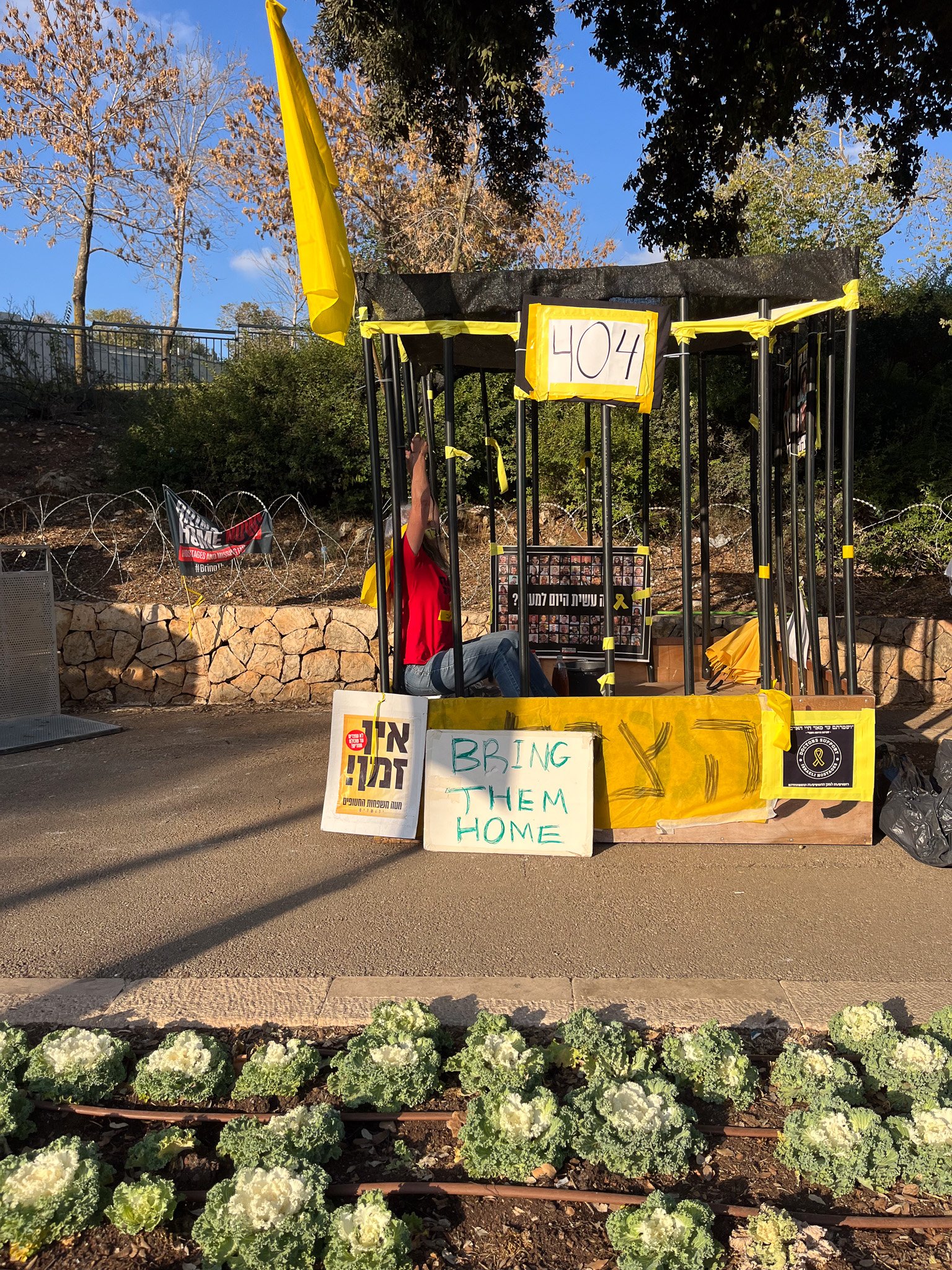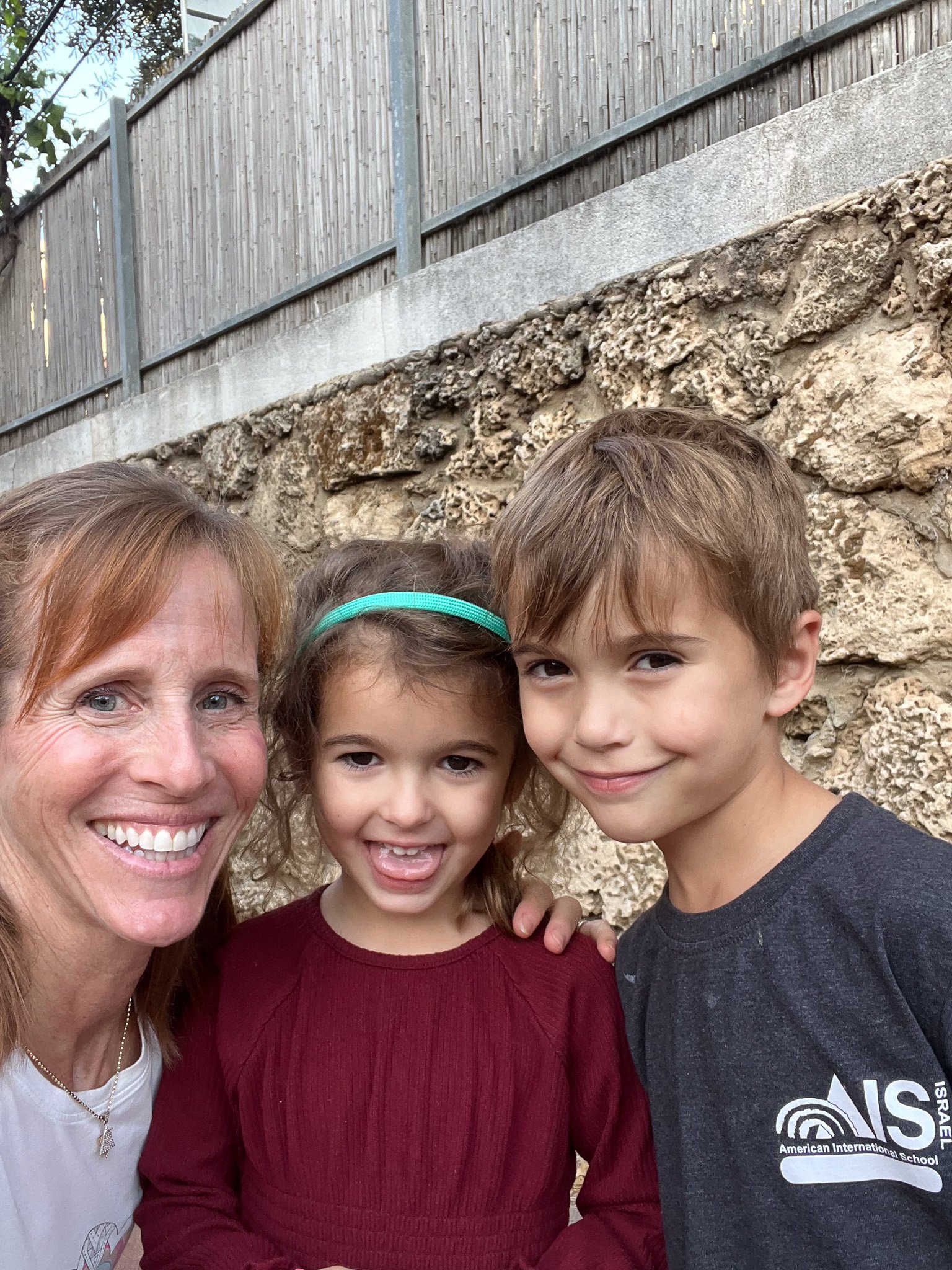Like watercolors dripping down the page, days and nights have been blurring together as the week goes on, so I will try to use dates and time stamps as much as possible to help me keep my own story straight.
As Thursday night (June 12th) rolled around, we were in high spirits despite an emotionally draining day in the Gaza envelope. One of our group members from Nashville (and my good friend who I’ve known since we were in grade school in Dallas), Camden, turned 31 at midnight, so we all wanted to show him a good time. We hit a few different night clubs in southern Tel Aviv, enjoyed some dancing, drinks, and conversation at a rooftop bar. Thursday in Tel Aviv is perhaps the second busiest night of the week for the bustling social scene, since Fridays are more (but not completely) quiet for Shabbat.
Around 3 am (now Friday the 13th—which I now realize may have been foreshadowing!), we got a red alert while on the rooftop. We all ran down three flights of stairs, out into the street, and into the nearest building we could find that looked open. It was a corporate office building of some sort. We ran down three more flights of stairs, and gathered at the very bottom of the concrete stairwell and began furiously checking our phones to try to figure out exactly what was happening. The headlines were mostly to the tune of, “Israel attacks Iranian nuclear facilities—retaliation is imminent.”
After a few minutes of deliberation, we decided it would be best to join the rest of our group back at the hostel less than a mile away. From what we heard, Iran was sending attack drones, but it would likely take a while—about 5-7 hours to close the 1,000 gap between Tehran and Israel.
As I can attest having been through Nashville’s recent tornadoes, the difference between a tornado watch and a tornado warning is similar to the two types of bomb alerts we get here in Israel. Either we get an alert to “stay near a shelter”, or an alert to “enter the shelter immediately.”
Technically at this point the warning was just to stay near shelter. But we also knew this was a big deal, a major turning point in the war. Attacking a superpower like Iran is not without consequences. And we were now playing a waiting game.
The news we read and now understand was that Mossad carried out a major multi-faceted attack, taking out their top commanders and nuclear scientists. The Iranian Regime was just days away from a major nuclear breakthrough, and Israel decided the existential risk of a nuclear Iran was greater than the risk of poking the bear. Diplomatic solutions were long past the point of no return and now was the time to strike.
We spent about 3 hours in the shelter until finally we got great news—Israel had intercepted every last drone before they even made it to our airspace. This felt like a major win. Israel carried out a heroic and complex operation and dealt a significant blow to a major enemy of their own as well as to the USA. (Remember, the Ayotolla and his henchmen have been chanting “death to Israel, Death to America” for years.) It seemed like David had shot Goliath right in the forehead with a slingshot.
This also meant we could finally go to bed and exhale a full sigh of relief. At 10:47 am on Friday the 13th, we got a message from Home Front Command app (Israel’s official app to alert citizens of security updates via the IDF) that said “end of stay next to protected space in your area.” I went to bed, but adrenaline, anxiety, and existential dread created a powerful cocktail of insomnia. I knew deep down that Israel may have won this battle, but also had just opened up Pandora’s box.
After laying in bed for several hours, I finally gave up around noon, when I got a video call from someone in the group that everyone was going to walk down the street to get coffee and pastries from the one shop that was open. I checked my phone and all my warning apps still indicated that we were free to walk around freely—no need to stay near a shelter. I consulted my cousin, who happens to be the head of the JNF (Jewish National Fund, a major non governmental organization in Israel) who assured me it was totally fine to go out and about as long as we stay aware of any alerts or sirens that may or may not arise. For now, we were in the clear. So I figured, “why not?” I couldn’t sleep anyway and coffee and a bourekka sounded like a welcome and well deserved treat after a sleepless night.
We walked down two blocks to the cafe and enjoyed a snack together, sang happy birthday to Camden again, and started discussing what to do next.
Friday was supposed to be the official kickoff for Tel Aviv Pride festival, something we were all very much looking forward to. Of course, Israel is the only country in the middle east that not only allows people to be openly LGBTQ+, but celebrates queerness and has a large and thriving queer population. Pride festival to all of us represents everything we love about Israel—it’s a celebration and declaration of love, acceptance, individuality, inclusion, and progressivism.
Unfortunately, but not to our surprise given the circumstances, Pride Fest was cancelled completely. In fact, we also got word that all our flights had been cancelled, as all Israeli airspace was closed until further notice. All commercial Israeli airlines moved their fleets to Europe to avoid aircrafts being targeted by Iran. The reality of this was a bit hard to swallow. I can’t recall any other time in my life when I have been away from home without any conceivable way to get home safely. With no public airport in the country in operation, the only way to get back to the States would be to drive to a neighboring country and catch a flight from there. So that leaves Jordan and Egypt, neither of which are safe or reliable options right now.
Despite this, and despite Pride being cancelled, we were still optimistic. A group of us walked about 25 minutes to the beach. The streets were relatively quiet, but in a calm way, not an unsettling way. Eva Marquis (Micah member and board member) got positive comments from strangers who liked the Israeli flag she tucked into her ponytail. One person even gave us a pride flag to complete her festive outfit.
We spent a few hours at the beach enjoying the absolutely gorgeous weather and took a swim. All my worries were washed away by the cool waters and soft sand of the Mediterranean. I took a nap under a gazebo, and eventually we made our way back to the hostel for Shabbat.
Our guide, Sergey asked me to lead a short Kabbalat service, to which I happily obliged. We sang and prayed on the rooftop as the sun set over Tel Aviv. Sadly, at 7:40, about halfway through the service I had planned, we got a warning alert to stay near the shelter. That meant no more rooftop for us. Nobody panicked, but we calmly made our way down to the dining room, where we finished the service and ate a delicious dinner prepared by the hostel staff.
At 9:02, we got another message from Home Front Command: “In the next few minutes, alerts are expected in your area In your area.” We heard the sirens going off outside, and all 200 people staying at the Abraham Hostel started making our way out of the dining room, down two flights of stairs to the safe rooms. About halfway down the stairs, we heard a LOUD explosion in the distance and felt the entire stairwell shake as if there was a heavy earthquake. I felt my heart jump out of my chest. We RAN down the rest of the stairs and into the safe rooms. My heart was still pounding, and I felt my eyes welling up with tears. I thought of my wife, parents, sister, and family and prayed that this wouldn’t be how it all ended for me—I couldn’t bear the thought of that for them (or myself). I sat in the corner and caught my breath for a few minutes, just wanting to be alone.
Some folks from one of the other tour groups started singing Israeli songs, wanting to break the tension in the room and distract ourselves from the obvious. A few people convinced me to play along on guitar even though I really didn’t feel like it, as I was still quite shaken. But as soon as I started playing, and the music and dancing got louder and faster, I started to feel better.
There were two more missile barrages that night at 1 am and again at 5 am. In between warnings, a group of us gathered in the dining room, and Camden and I entertained them with more music.
We got through the sleepless night all together—laughing, crying, singing, hugging, and supporting each other.
Saturday was a relatively quiet day, followed by a slightly less chaotic night, with only one time going to the shelter at 2:30 am.
In all, over the weekend, Iran sent 100 drones and nearly 300 missiles all over Israel, with about 14 fatalities total.
This morning, Birthright moved us and all the Birthright groups around the country to a different location in a remote area (which I won’t disclose online, but you can ask me). There are nearly 400 birthright participants in our hotel, mostly college-age. We had to shelter once so far tonight at the new location, but overall, it does feel slightly less hectic and dangerous here.
Our trip was supposed to conclude tomorrow (Monday), but as of now, we are stuck here until further notice. We are hopeful that we will all be able to get home safely soon.
I so appreciate all the texts and calls with concern. This is a life-changing experience, for sure, but I balance that thought by reminding myself that Israelis have to experience this kind of uncertainty all the time in their everyday lives. I think this experience has already made me and everyone in the group more resilient, resourceful, and tough, like a Sabra. I don’t know if I’m quite brave enough yet to sign up for the IDF, but it I do feel such a deeper respect and appreciation for what they do every day to keep the holy land safe.
Praying for a day when everyone here can live in peace, free from fears of attack. Nobody deserves to live without a sense of basic safety and security.
I promise to keep you updated on our situation.
With love and appreciation,
Cantor Josh Goldberg






















































































